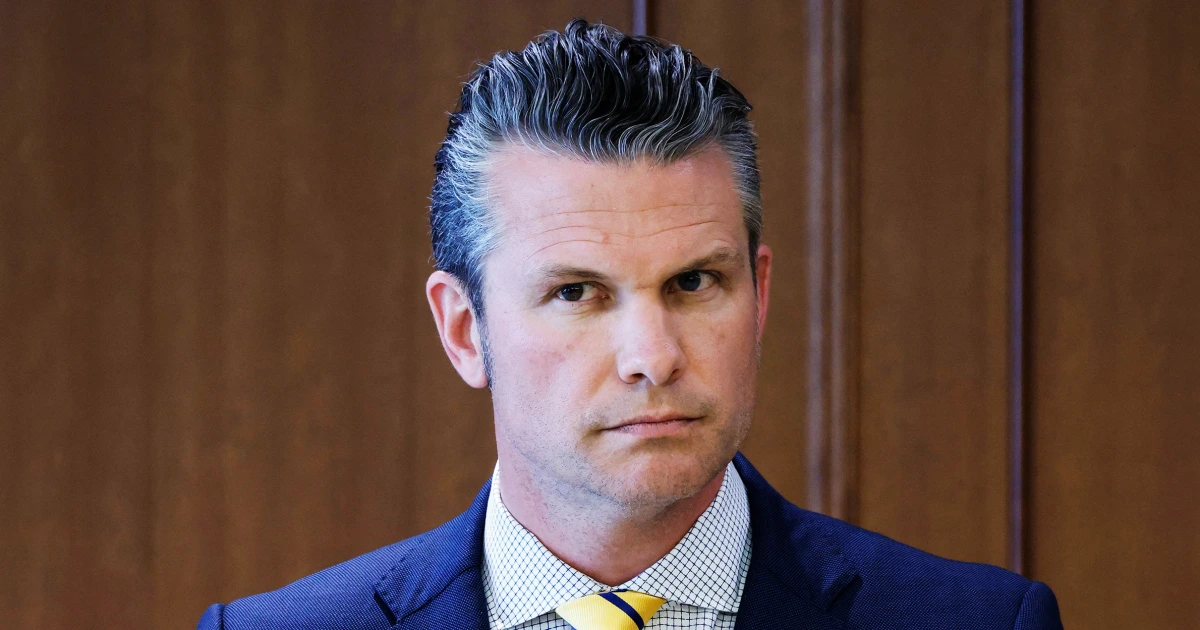WASHINGTON — Minutes before U.S. fighter jets took off to begin strikes against Iranian-backed Houthi rebels in Yemen last month, Army Gen. Michael Erik Kurilla, who leads U.S. Central Command, used a secure U.S. government system to send detailed information about the operation to Defense Secretary Pete Hegseth.
The material Kurilla sent included details about when U.S. fighters would take off and when they would hit their targets — details that could, if they fell into the wrong hands, put the pilots of those fighters in grave danger. But he was doing exactly what he was supposed to: providing Hegseth, his superior, with information he needed to know and using a system specifically designed to safely transmit sensitive and classified information.
But then Hegseth used his personal phone to send some of the same information Kurilla had given him to at least two group text chats on the Signal messaging app, three U.S. officials with direct knowledge of the exchanges told NBC News.
The sequence of events, which has not previously been reported, could raise new questions about Hegseth’s handling of the information, which he and the government have denied was classified. In all, according to the two sources, less than 10 minutes elapsed between Kurilla’s giving Hegseth the information and Hegseth’s sending it to the two group chats, one of which included other Cabinet-level officials and their designees — and, inadvertently, the editor of The Atlantic magazine. One of them was composed of Hegseth’s wife, brother and attorney and some of his aides.
Hegseth shared the information on Signal even though, NBC News has reported, an aide warned him in the days beforehand to be careful not to share sensitive information on an unsecure communications system before the Yemen strikes, according to two sources with knowledge of the matter.
“No classified material was ever shared via Signal,” said Chief Pentagon spokesman Sean Parnell, who called the allegations “an attempt to sabotage President Trump and Secretary Hegseth.”
President Donald Trump tapped Hegseth, a former Fox News personality, for a job for which Democrats and even some Republicans worried he was not qualified. Now, in the wake of the revelation of the second Signal chat that included his wife and his brother, which The New York Times first reported Sunday afternoon, he faces calls for his dismissal even as Trump stands behind him.
“Pete’s doing a great job; everybody’s happy with him,” Trump said Monday at the White House Easter Egg Roll. “There’s no dysfunction.”
Hegseth was also defiant at the event, dismissing the reports, though not specifically denying them. “This is what the media does,” he said. He added, “It’s not going to work with me, because we’re changing the Defense Department, putting the Pentagon back in the hands of war fighters, and anonymous smears from disgruntled former employees on old news doesn’t matter.”
At least one member of Trump’s own party sees it differently. Rep. Don Bacon, R-Neb., who is on the House Armed Services Committee, on Monday became the first sitting Republican member of Congress to publicly call on Hegseth to resign.
“I had concerns from the get-go because Pete Hegseth didn’t have a lot of experience,” said Bacon, a retired Air Force general. “I like him on Fox, but does he have the experience to lead one of the largest organizations in the world? That’s a concern.”
Two Trump advisers, speaking on condition of anonymity Monday, dismissed the idea that Hegseth will be fired.
“There is no talk right now of removing or replacing him. We have been through this before, and as of the moment, it’s just not something we are talking about,” one said.
The other said: “The idea something like this would force him out is not reality. The president still supports him.”
A former senior official in Trump’s first administration, who spoke on condition of anonymity, citing fear of retaliation, expressed bafflement at Hegseth’s decision to share the information about the Yemen strike with his wife and his brother.
“I can’t imagine a scenario where national security officials would see fit to share sensitive details about policy and planning with family members who don’t have a need to know,” the former official said. “To do it over an unclassified messaging app is even more egregious.”
Matt Dixon, Mosheh Gains and Peter Nicholas contributed.
